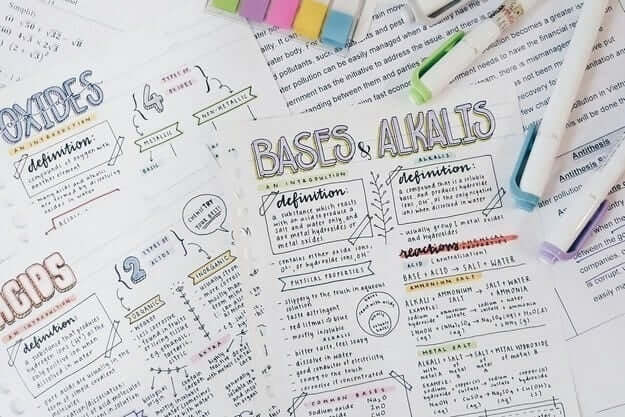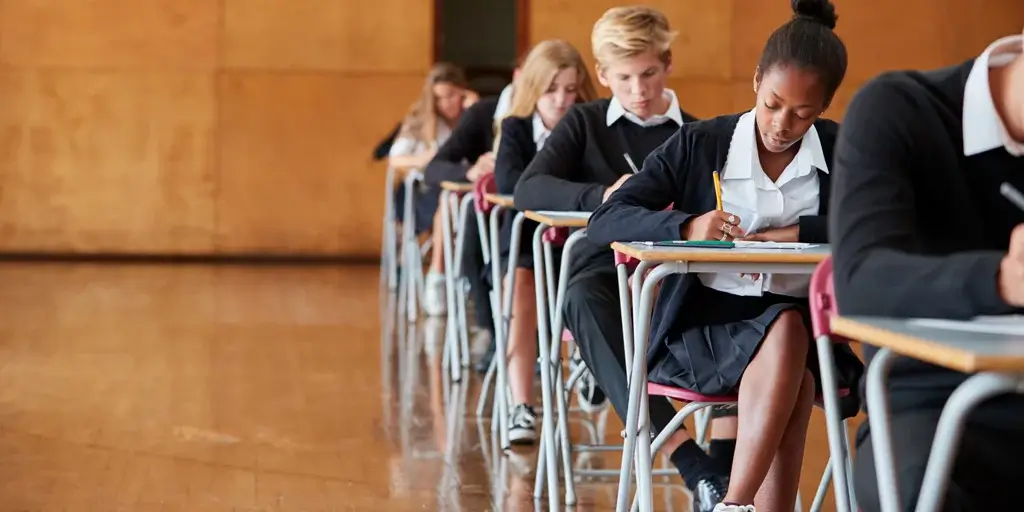Why Studying for Exams is Different to Learning for Learning

Exams v Learning
This may sound familiar: your child wants higher marks. In class, they understand what’s being said, the content fits, their homework is mostly right and the vibes align. In exams, they feel they did well. And then the marks come back. And they can’t understand what went wrong.
Many students have been there, as have many exasperated and concerned parents.
A few factors are at play when this happens, but one is strikingly common: studying for an exam is different to learning just for the sake of learning. They’re different beasts. They have different incentives. They must be approached in different ways.
To understand why, we need to unpick the logic behind exams, how exam writing is a unique, separate skill and how to blend learning with exam technique to supercharge your child’s marks.
What exams are meant to do
Few people find exams exhilarating (minus a few of us proud nerds!). They are, however, a necessary part of the learning process.
Teachers call exams ‘summative assessments’. This is because they test the ‘summary’ of a student’s knowledge and skills after classes have been held and learning has taken place.
Exams give three sets of people critical information:
• The teacher senses how well teaching went and identifies which students need additional support.
• Students gauge their own successes, identify problem areas and determine how to amplify their learning going forward.
• Parents and guardians know if their kids are coping and if they need to intervene.
We don’t yet have the technology to glean the same data without deploying some kind of summative assessments. Granted, exams aren’t the only kinds of summative tests, but they are a part of most curricula. They can’t be avoided.
How exam design encourages studying
Examiners know what knowledge and skills students must demonstrate to progress to the next grade or to graduate. They need to find a way to help students show this. The solution is setting questions that prompt students to showcase their learning in some way, allowing markers to infer from responses that requirements have been met.
One known challenge with exam design is that demonstrating knowledge is often indistinguishable from stating a memorised fact or phrase. This also applies to skills: it’s difficult to tell the difference between an answer crafted by a student who has mastered a skill, and one delivered by rote from a studied example.
The result, as you can imagine, is that exam design encourages and awards studying, even if only some questions are meant to do so. Over centuries, kids have learned that studying works.
And that – the reliance on studying – is a reason why exams do not always measure a student’s real learning, but how well they study.
Recall isn’t learning
Studying usually involves brute-force memorisation, log-jamming content into memory as quickly as possible. This is a very specific skill and it’s only a small component of humans’ cognitive capacities.
Recall isn’t learning. In fact, despite how hard memorisation may seem to many people, high school teachers consider recall to be one of the lowest, easiest forms of thinking. Your child can memorise lists of information that they don’t understand. They can even recall words in a language they don’t speak. The mere fact of recalling something in an exam doesn’t show that they’ve learned anything deep about the subject matter, only that they’re an ace at memorisation.
Real learning is a slow, iterative process. It works by linking a child’s prior knowledge and background to new ideas; packaging the ideas through instruction, play and exploration; developing more complex understandings through increasingly challenging activities; and reinforcing the ideas through assessment. Even when a child has learned something – truly learned it, incorporated into their memory and outlook, worked out how to apply it to other contexts – that learning isn’t always demonstrable through an examination.
Exam technique isn’t learning
Exams are a specialised form of assessment. They’re complex documents and they use specific, highly researched tactics to measure what they purport to measure. Knowing this helps students develop techniques for approaching exams effectively, regardless of how well they’ve studied or learned:
• Questions must be read systematically. In higher grades, they are layered and require careful unpacking.
• Answers need to be constructed lucidly to respond to each question demand, linking components together in the way the question calls for.
• Time pressure places stress on a student to respond quickly and manage workload skilfully.
• The need to prepare beforehand is mentally taxing and requires planning beforehand and alertness during the assessment.
Even a student who has mastered subject matter might struggle with these very particular skills, which blocks them from demonstrating that they have done the learning. It can take a while to develop an ‘exam-taking competency’, but it’s a critical skillset for any student to have. A tutor is a perfect guide for this.
Real exam success comes from combining learning with studying and exam technique
There is a last wrinkle to consider. Teachers are aware of the limitations of assessing drillable content and skills.
Skilled examiners know how to set questions in such a way that rote knowledge isn’t required or is only the basis for the right response. They build questions and techniques into their papers that deliberately make students rely on deeper understanding and sophisticated skills.
This is more common in some subjects than in others, and often the highest marks are reserved for students who can grapple with these questions. This depth of thinking is advanced and assessors often include some lower-order questions to give all students a fair shot at the exam.
What this means is students need to understand that learning for an exam requires a combination of approaches:
1. An amount of memorisation and drilling
2. Competency in exam technique
3. A general mastery of the subject matter
All three factors combined, and evenly approached, lead to success in examinations, allowing kids to show their teachers in the right way that they’re ready to progress.
For more information, have a look at:
https://www.teachme2.com/blog?p=managing-exam-stress-essential-survival-tips-for-parents
https://www.teachme2.com/blog?p=from-distress-to-success-8-tips-to-help-your-child-overcome-school-anxiety
Related Articles

Why Copying Notes Isn’t Enough for Effective Learning
When I was a high school teacher, I saw students trying everything to study better. Before an exam, they crowded into corridors with notebooks and exam pads,
Read More

Tutoring Sessions: How to Get the Most for Your Child
A tutor – someone who works with your child one-on-one, understands their specific needs and tailors teaching – is a powerful partner in an
Read More

Managing Exam Stress: Essential Survival Tips for Parents
As parents, we know that a little bit of stress can actually be a good thing—it can motivate our children and help them focus during exams. This kind of
Read More

We help families find their perfect tutor
Help your child improve their grades and get their confidence back.
GET A TUTOR